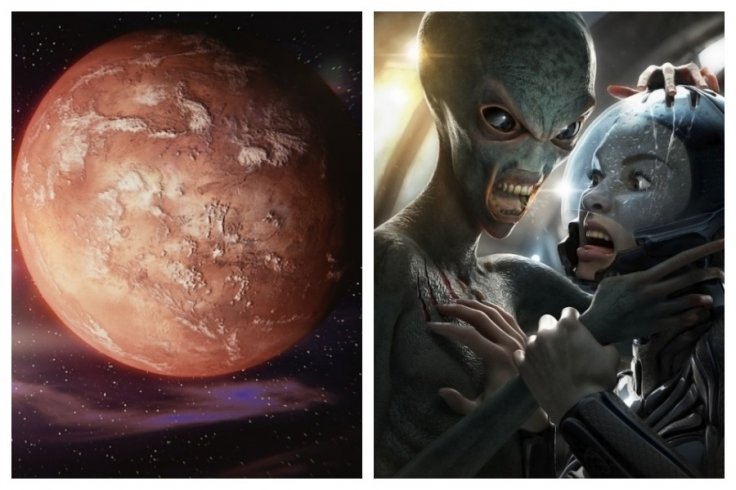The year 2020 is memorable in human history not only because of the COVID-19 pandemic but also due to the detection of phosphine on Venusian clouds, which scientists consider an indication of alien existence on Venus. The discovery of phosphine was totally unexpected, as no known chemistry apart from a biological process could result in its formation.
Venusian Clouds and Martian Underground
A new study conducted by researchers at Harvard University has now claimed to have figured out a way by which alien life can be searched in the underground of Mars and the moon. According to researchers at the Center for Astrophysics at Harvard and the Florida Institute of Technology (FIT), searching for water on the surface of distant space bodies is not enough to determine the habitability of distant space bodies, instead, it is necessary to dig deep to know whether these cosmic entities are hosting alien life.
"We examined whether conditions amenable to life could exist deep underneath the surface of rocky objects like the Moon or Mars at some point in their histories and how scientists might go about searching for traces of past subsurface life on these objects," said Manasvi Lingam, assistant professor of astrobiology at FIT and lead author of the study, in a recent statement.

Even though drilling the surface of Mars and the moon might be a difficult task, researchers noted that it is not an impossible thing to do. Scientists also suggested that Mars might have sub-surface water, which could be offering a living habitat for alien creatures.
The Possibility of an Alien First Contact
Avi Loeb, who previously suggested the alien origin of Oumuamua, the first known interstellar object that visited the solar system also shared similar views, and he made it clear that exploring the underground of Mars could be pivotal in looking for alien life on the Red Planet.
"Both the Moon and Mars lack an atmosphere that would allow liquid water to exist on their surfaces, but the warmer and pressurized regions under the surface could allow the chemistry of life in liquid water," said Loeb.
Earlier, several space experts have claimed that Saturn's moon Enceladus is one of the potential candidates where life could be thriving within the solar system. Scientists made this assumption after detecting the presence of methane in the icy plumes that were blasted out from the moon's interior.
As the search for alien life is taking new dimensions, several space experts believe that alien first contact could happen soon. Earlier, NASA chief scientist Dr Jim Green had also predicted that the discovery of alien life on Mars could happen within 2021. However, he believes that humanity is not prepared enough to accept the realities surrounding alien life.









